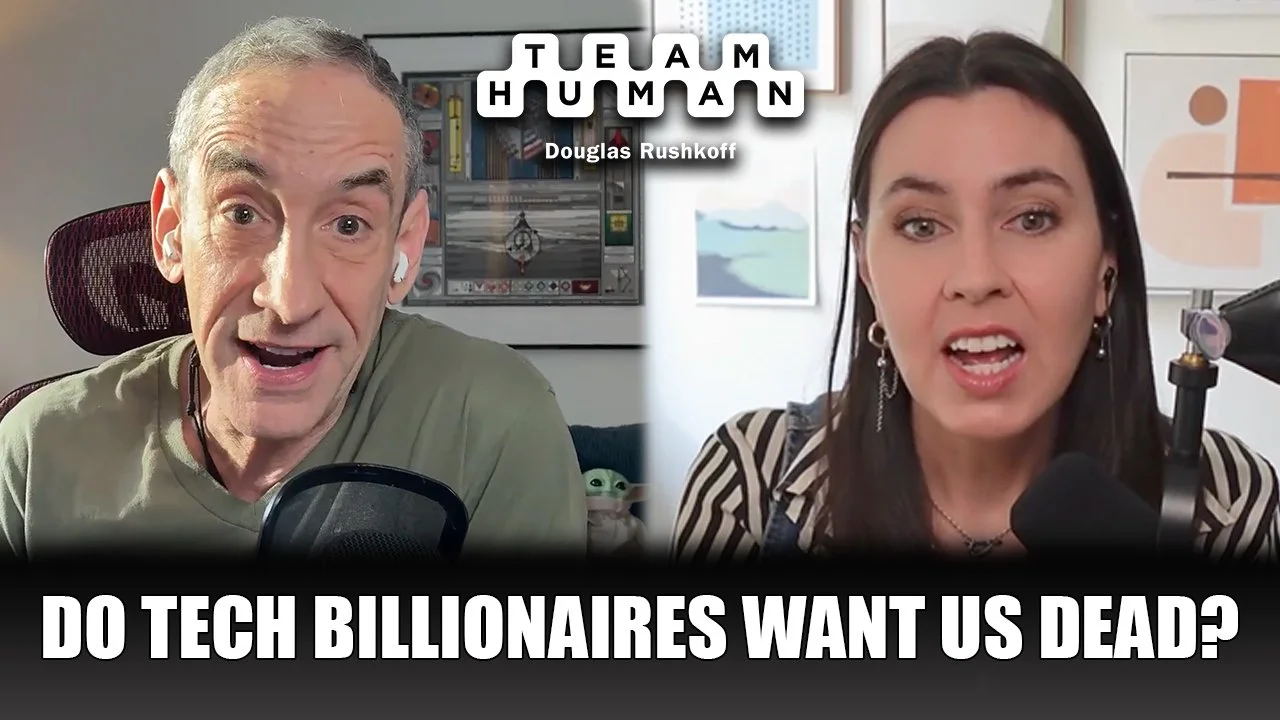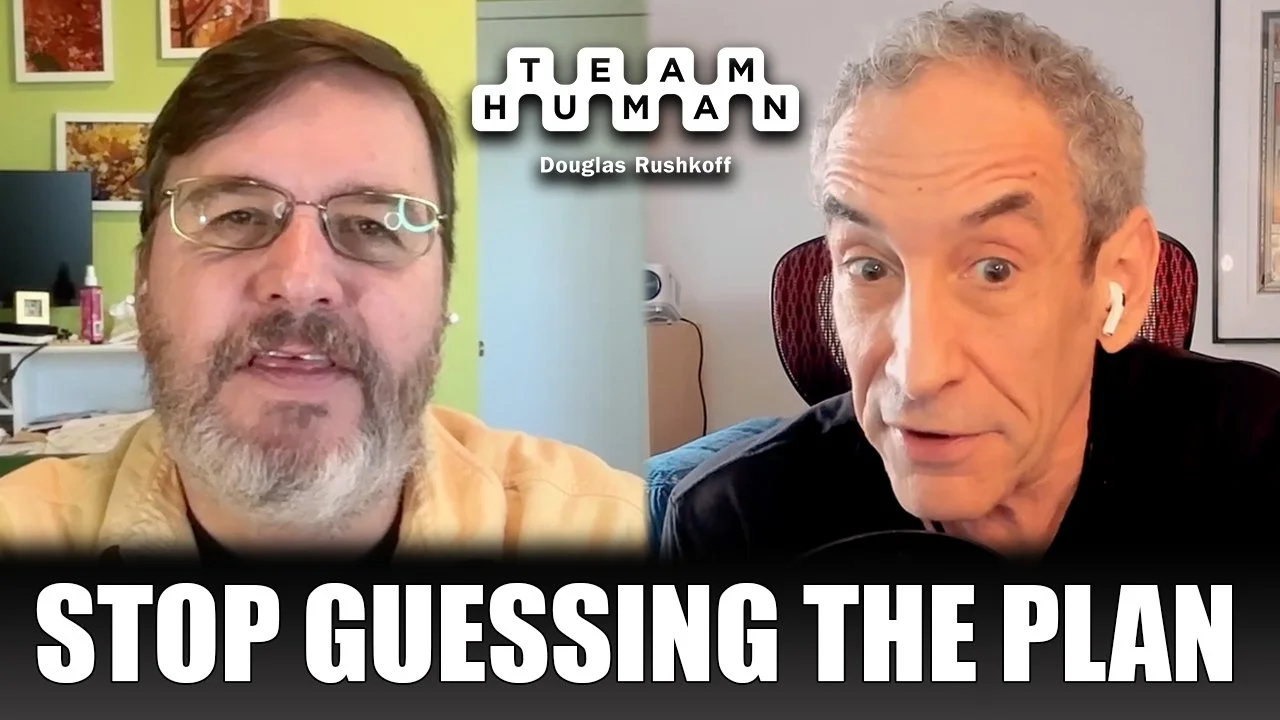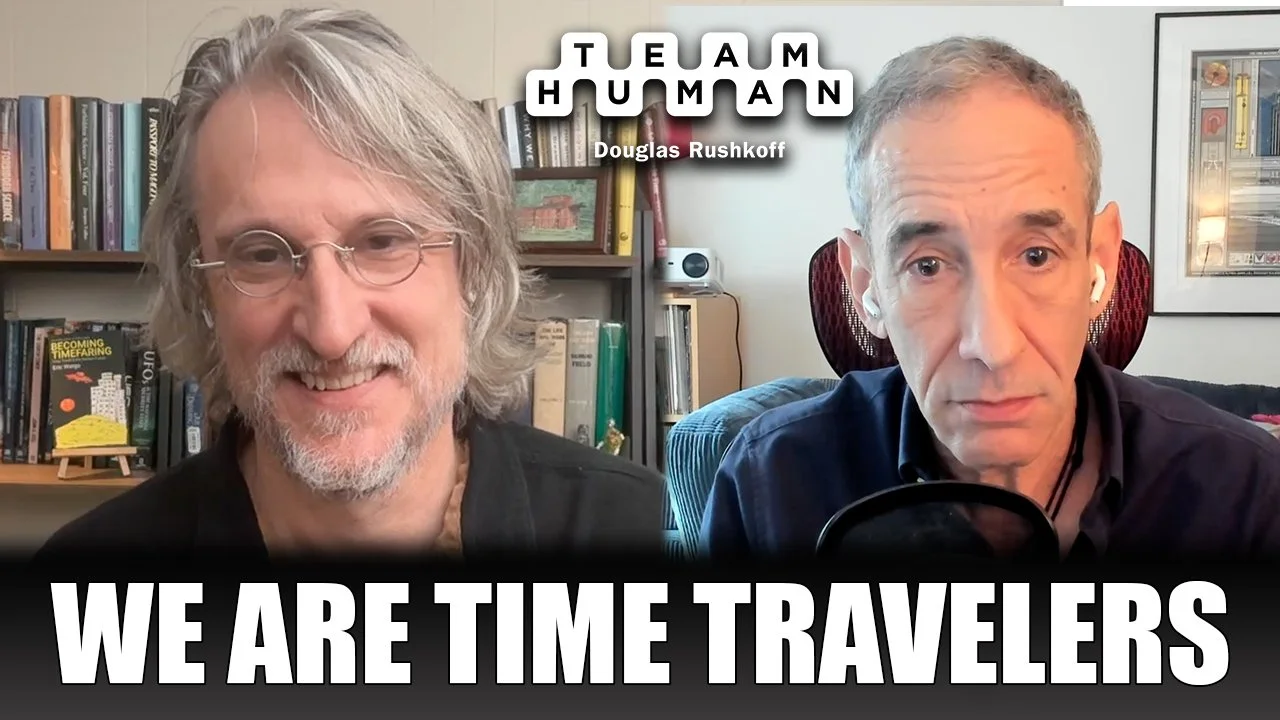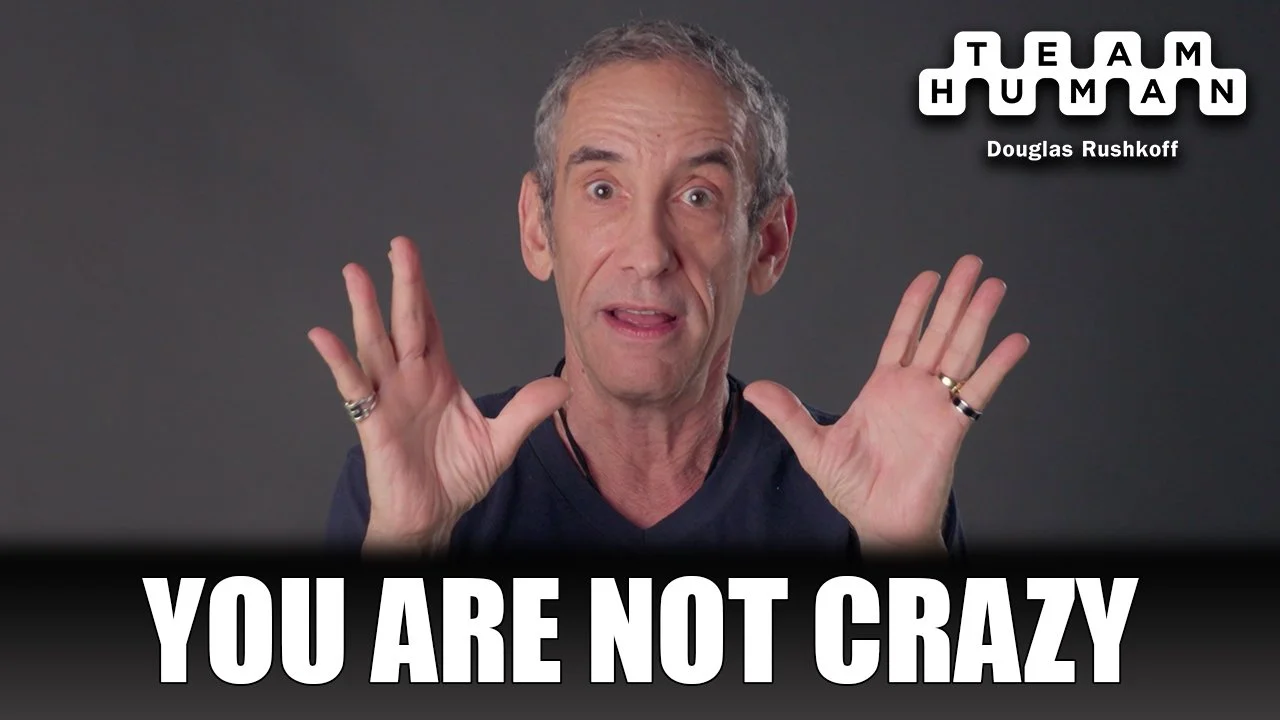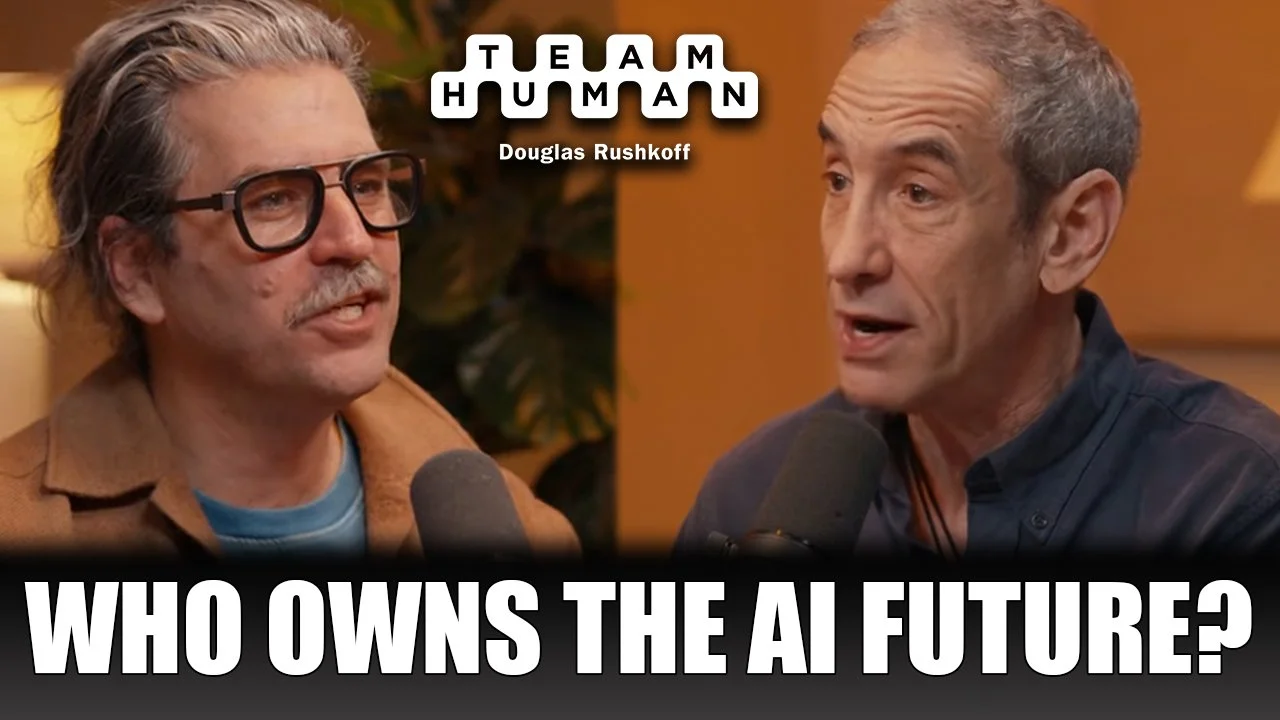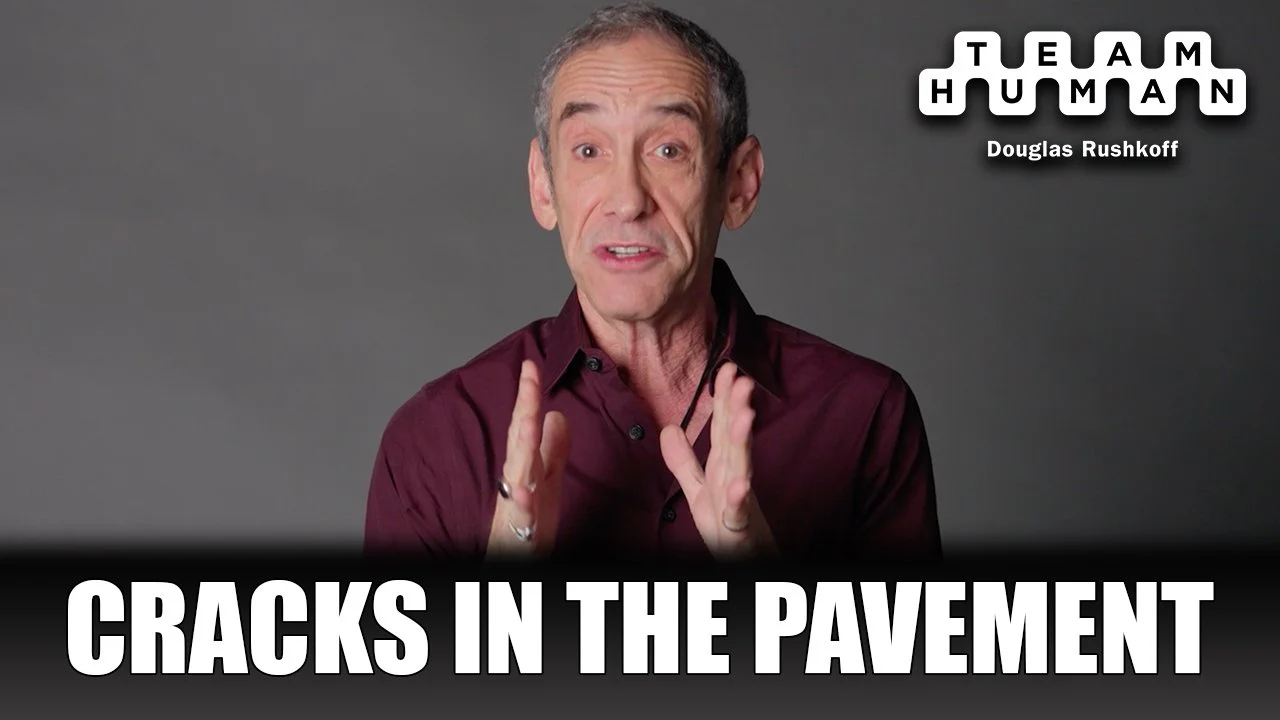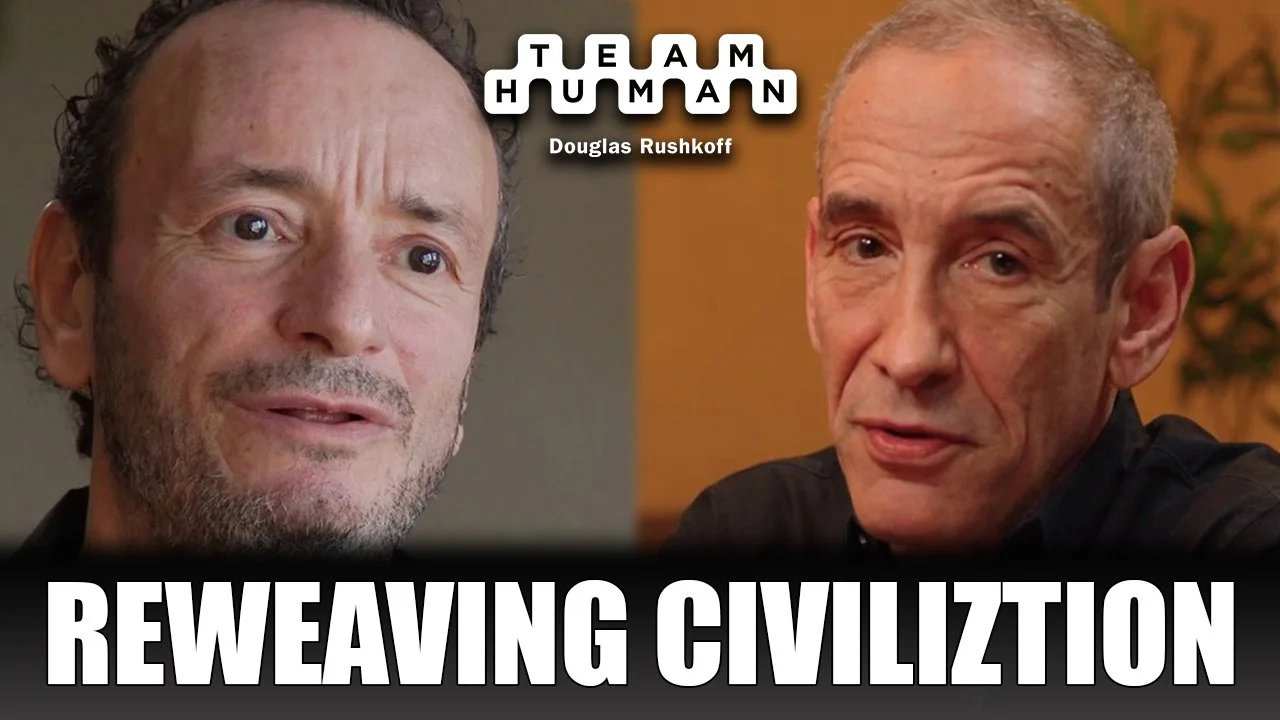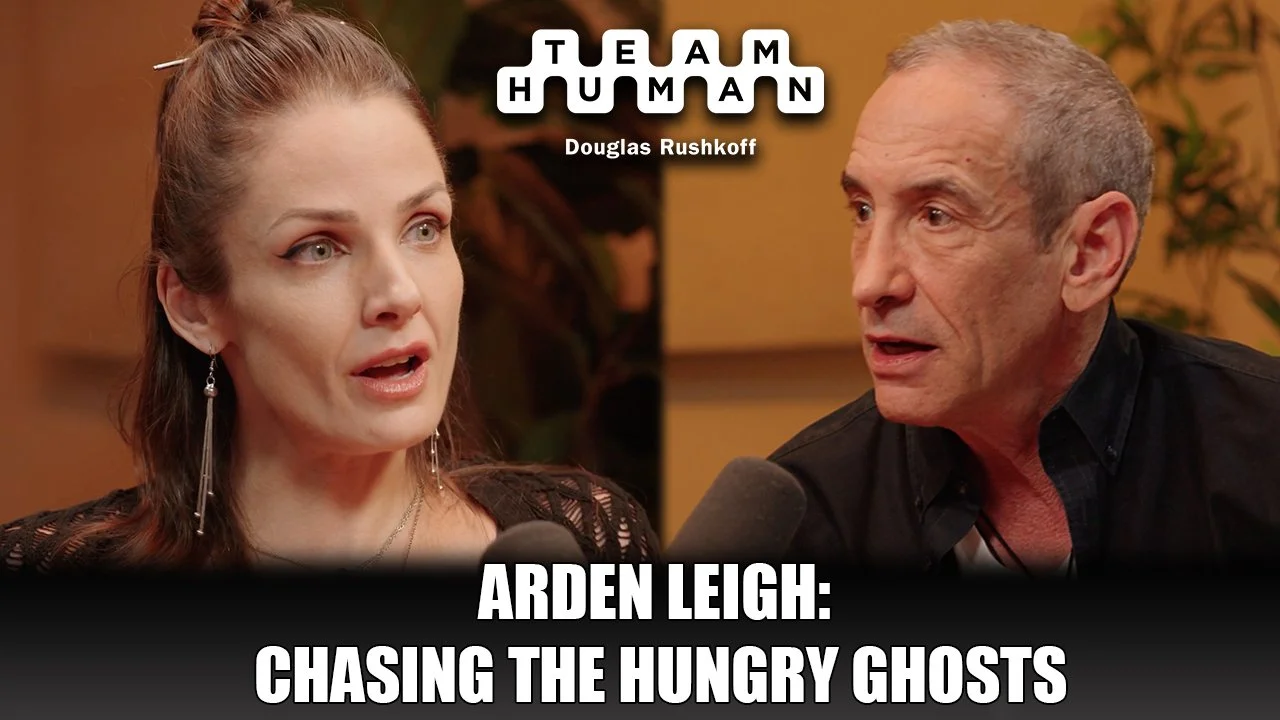Ep. 354
Is the online safety legislation moving through Congress actually a Trojan horse for mass surveillance? And do the tech billionaires building our future actually care if the rest of us survive it?
Rushkoff sits down with Taylor Lorenz, the internet’s premier culture reporter and founder of User Mag, to discuss her departure from legacy media (The New York Times, The Washington Post) and the dangerous reality of the new tech authoritarianism.
Ep. 353
Is magic just "positive thinking," or is it a causative force that can reshape reality? Rushkoff sits down with occult historian and author Mitch Horowitz (Occult America, Daydream Believer) to explore the boundaries of will, belief, and the material world.
Ep. 352
We are no longer waiting for the other shoe to drop: We are living in the aftermath. Rushkoff sits down with Jonathan Larsen, editor of The Fucking News, to ask the question: Now that we are soaking in authoritarianism, how do we get out?
Ep. 351
The other shoe finally dropped. We are no longer waiting for authoritarianism to arrive; we are soaking in it.
Rushkoff argues that the time for speculation, strategizing about political optics, and "preparing for what comes next" is over.
Ep. 350
Multidisciplinary researcher and author Eric Wargo joins Rushkoff to help us decolonize our minds from the linear march of deterministic doom.
Ep. 349
If explaining the state of the world makes you feel like a conspiracy theorist, you aren't alone.
Ep. 348
Tom Llewellyn, Executive Director of Shareable, explores the power of Libraries of Things, mutual aid, and community-run infrastructure as practical alternatives to extraction-based economics.
Ep. 347
Ari Kuschnir, AI storyteller and artist, takes us deep into the alchemy of AI storytelling as a form of social practice and activist imagination.
Ep. 346
Rushkoff discusses why the urgency and inevitability of our situation calls for us to consider the impossible.
Ep. 345
Vicki Robin, author of classic books like Your Money or Your Life and Blessing and The Hands That Feed Us, and Rushkoff seek to embrace this challenging moment by embracing one another. Robin shares how growing older shifts your perspective from the personal to the universal, and why the questions we've been asking our whole lives might matter less than how we show up for each other.
Ep. 344
Jeremy Lent, author of The Patterning Instinct and integrator, helps us investigate the patterns of thought that have led our civilization to its current crisis of sustainability and develop the patterns of thought we need to get through to the other side.
Ep. 343
Arden Leigh, the creator and facilitator of The Re-Patterning Project and front woman of Arden and the Wolves, helps us negotiate a new relationship to our individual and collective creative power.

